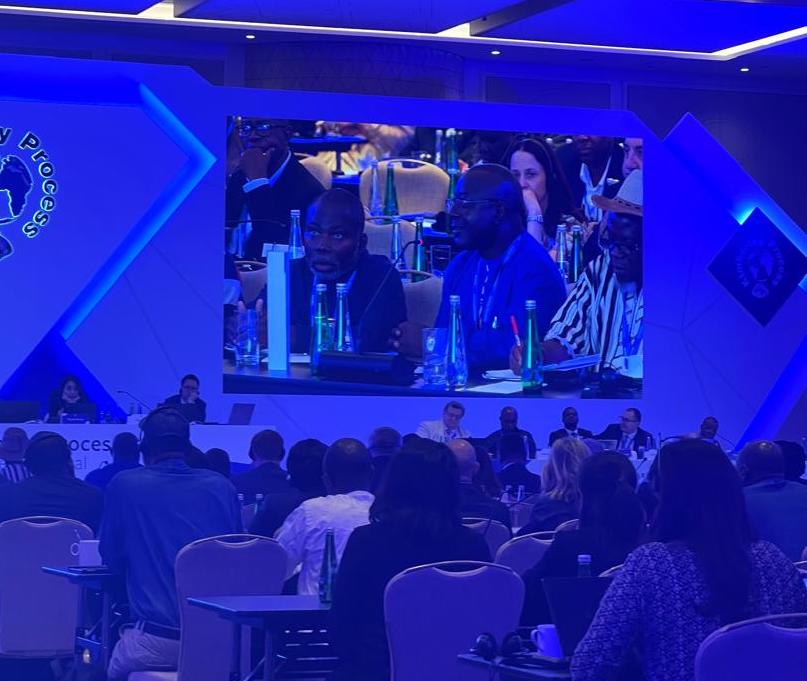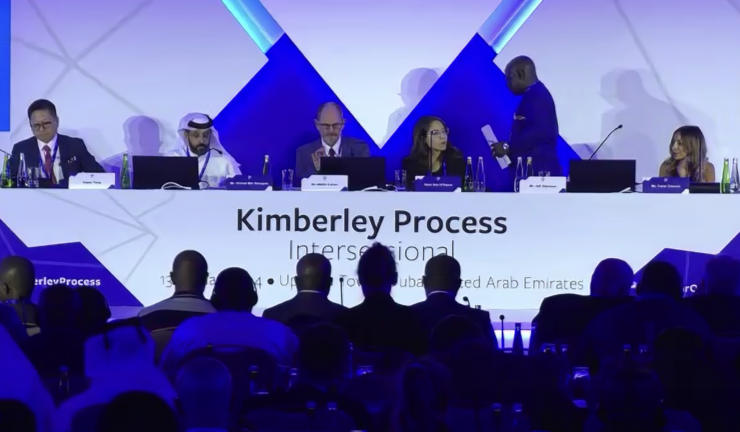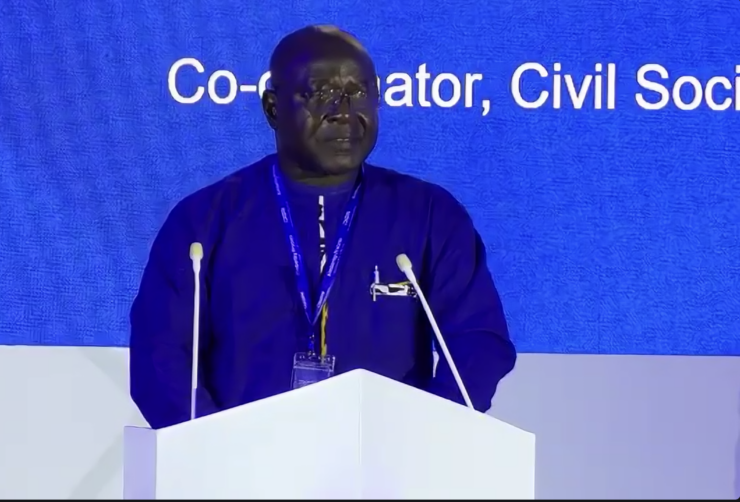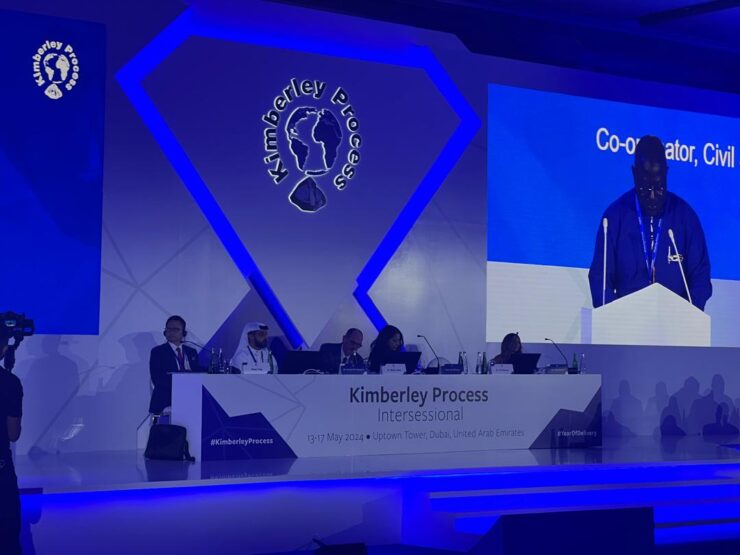Closing remarks by the Civil Society Coalition at the Kimberley Process intersessional meeting in Dubai.
17 May 2024
“Civil Society Coalition is happy at the significant breakthrough during this intersessional meeting. It occurred on day one: for the first time in its history, the Kimberley Process (KP) invited communities to testify about the impact of diamond mining on their lives, even though some participants were threatened by the “truth” in the room. The community representatives unveiled how current-day conflict is not only about rebels but also about broken promises, forced relocation, house destruction due to blasting, poor living conditions, environmental degradation, and violence against artisanal miners.
Many of the challenges were echoed by the experts from the UN Working Group on Business and Human Rights and the Responsible Business Alliance who were invited to give insights on what current-day conflict looks like. They stressed the need for the KP, if it is to be relevant today, to respond to human rights violations and environmental degradations, and to foster responsible sourcing and development.
The Civil Society Coalition called on Participants to change their mindsets if this is indeed to be the ‘Year of delivery’.
We are encouraged by the incremental, albeit fragile progress made regarding the Central African Republic (CAR), which has been under KP restrictive measures since 2013. The renewed engagement of the CAR government with the KP Monitoring Team signifies a positive shift towards cooperation.
Civil society is hopeful and urges for a KP review mission to the country to finally happen this year. Such a mission will be key to further restoring trust and getting a first-hand, on-the-ground assessment of the efficacy of traceability controls from the country’s current compliant diamond mining zones.
To enrich the snapshot view of such a visit, we emphasize the importance of building it upon and integrating conclusions with the findings amassed through years of remote monitoring, statistical analyses, shipment controls, and data collection by the CAR Monitoring Team. These collective efforts should pave a roadmap for the gradual relaxation of restrictions on CAR, benefiting both the formal sector and artisanal mining communities while curbing the influence of criminal, mercenary, and rebel elements that have found fertile ground in CAR’s illicit diamond economy.
We implore each of you to approach this opportunity with utmost seriousness and sincerity. For the Kimberley Process, failure in CAR reverberates as a failure across its entirety.
The discussions on broadening the conflict diamond definition started on the wrong foot, but unexpectedly took a turn to be a space where Participants listened to each other. We call on Participants to not shy away when consensus is looming on elements in the definition that will push accountability to a higher level.
The Kimberley Process should not miss yet another opportunity. Continued inaction will result in losses for all involved: communities will be left marginalized, unable to reap the benefits of their diamond resources, the diamond industry will suffer from dwindling consumer trust and rough diamonds will lose their shine. Without Participants taking ownership of responsible diamond sourcing and prioritizing the welfare of communities living near or from diamond mining, the KP risks becoming a relic of the past. Persistent inaction will expose ever more to the deception of the KP’s conflict-free guarantees. The change in definition must be done and it has to be real. It is not a matter of choice, but a necessity for the KP to survive.

The imperative to strengthen the peer review system is equally crucial. The credibility of the certification scheme hinges on the thoroughness of review visits and the subsequent implementation of their recommendations. We urge the KP to regularly report on the progress within the countries visited. For pending reports, let diligence be done.
This diligence in conducting review visits extends beyond merely assessing the minimal requirements. An ambitious Kimberley Process should actively promote positive action to foster the development of the communities impacted by diamond sourcing and production. If progress on the implementation of Frame 7 is not addressed during review visits and reflected in review visit reports, the invaluable exercise of mapping best practices is nothing more than words on paper.
Some boxes have been ticked. The adoption of the concept of Co-chairmanship is an example, a concept with potential, to allow smaller countries to assume the role of chair.
An important remaining assignment for KP Participants for the next months is working towards a genuine solution on how this certification scheme can facilitate much-needed efforts towards diamond traceability. We should avoid that origin declarations are open to manipulation and would allow once more to deceive consumers. Any guarantee given on a KP certificate must be supported by rigorous controls and verifiable evidence.
There is no beauty but the beauty of action. Take action. And do it now.”
Jaff Bamenjo
KP CSC Coordinator







